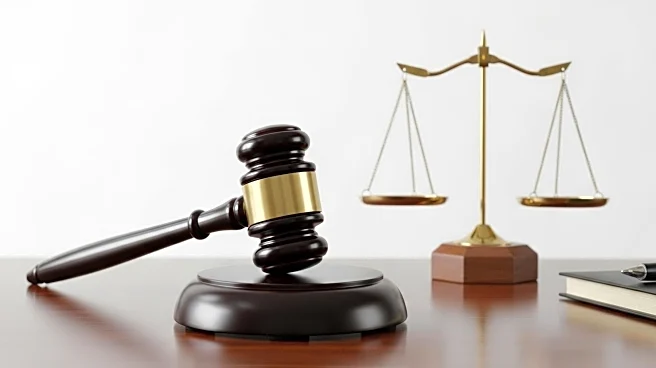What's Happening?
Tim Burke, a former Deadspin video editor, has seen several charges against him dismissed in a federal case. The case revolves around Burke's alleged unauthorized access to video files from Fox News, which included an unaired interview between Tucker Carlson and Kanye West. U.S. District Judge Kathryn Kimball Mizelle dismissed half of the fourteen charges against Burke, citing First Amendment violations. The charges were related to the Wiretap Act and were dismissed due to concerns about free speech. Despite this legal victory, Burke still faces seven charges, including conspiracy and computer hacking, which could lead to significant prison time if convicted.
Why It's Important?
The dismissal of charges against Tim Burke highlights ongoing tensions between digital media practices and federal privacy laws. The case underscores the challenges journalists face when accessing and disseminating information in the digital age. The ruling is seen as a defense of press freedom, with implications for how journalists can legally obtain and use sensitive information. However, the remaining charges against Burke suggest that the legal system continues to grapple with defining the boundaries of lawful journalistic activity, particularly in the context of digital media.
What's Next?
While several charges have been dismissed, the remaining charges against Tim Burke could still result in a felony conviction and years of imprisonment. The prosecution may attempt to amend their legal arguments to address the First Amendment issues identified by the judge. The outcome of this case could set a precedent for future cases involving digital media and privacy laws, potentially influencing how journalists and media consultants operate in the U.S.
Beyond the Headlines
This case raises important questions about the balance between privacy laws and freedom of the press. It highlights the ethical and legal challenges faced by journalists in the digital era, where accessing information often involves navigating complex legal landscapes. The decision could influence future legal interpretations of the First Amendment in relation to digital media practices.











